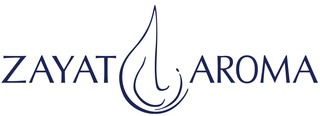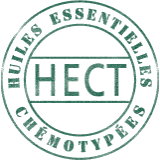I believe that education goes from the womb to the tomb
What I teach is intuition. There is something much greater that guides us through our lives.
Text written by Nicolas Fonda & published in the Records Newspaper, Septembre 2010.
A school need not be multi-storey brick building crammed with computers. Indeed, in this case the school is a modest suburban bungalow, hardly different from its neighbours save for the few cars parked in front of the house and a back yard that features a tepee and a small labyrinth. This is the home of Mikaël Zayat and his family.
When I finally meet him, both the man and his work prove to be a surprise.
What I had first heard of Mikaël Zayat was that he produced and sold essential oils. Eventually I will learn that he is the founding president of the Alliance of Quebec Essential Oil Producers. There are some 20 small firms around the province which produce and sell essential oils. For his part, Mikaël distils or extracts essences from some two dozen different trees, shrubs and plants which are commonly found in the fields and forests around Townships. As well he imports hundreds of essences from around the world. Appropriately enough, his last name, Zayat, comes from an Arab word which means maker of oil.
Yet, when we eventually sit down to talk, it’s not aromatherapy which is on his mind, it is education. One of the first things he says is, “I am not a doctor, although I have a brother who is a doctor. I am a teacher. I teach people how to stay healthy.”
If the word teacher evokes the image of a somewhat harried individual standing in front of a large group of children or adolescents crammed into a classroom too small for the actual number present, Mikaël Zayat will tell you that he’s been there and done that.
Born in Egypt almost 65 years ago, Mikaël Zayat trained to be a classroom teacher. After hitchhiking around many of the countries that border the Mediterranean Sea, he came to Canada and enrolled at the University of Ottawa with the intention of pursuing a PhD in Education. His particular interest was comparative education and he worked closely with his thesis director, Dr. Athanas Ramunas, to the point of translating into English a book entitled Comparative Education in the Teaching Profession written by Dr. Paplauskas Ramunas. However, a couple of factors, including the premature death of Dr. Ramuas, led Mikaël Zayat to eventually abandon his thesis and his doctorate.
By the early 1980s, by which time he had gained experience teaching at several different levels from Grade One to University courses and that included one class of 40 youngsters deemed to be juvenile delinquents, Mikaël Zayat decided to move on from institutional education.
Over a relatively short period of time a couple of significant things occurred in his life. One was that on a train ride to Trois-Rivières he met Katherine Courchesne, the woman he eventually married and with whom he has raised two children into adulthood. The other is that he fell seriously ill and was cured not by surgical intervention but by herbs and diet.
It was thanks to his wife that Mikaël Zayat discovered the Townships. “I’ve been in the same house for the last 20 years,” he says. “I love the area—the old name of West Shefford may be more attractive than the current name of Bromont—but it’s beautiful here. I appreciate the fact that it‘s a bilingual area. Language carries culture, and I learn more about my own culture when I compare it to another culture. Through diversity we acquire unity and come to understand ourselves. Diversity is important in Nature and it’s equally important to human society. Here in the Townships the two cultures work together so beautifully.”
Mikaël Zayat works from home and the entire basement floor is given over to his teaching. The largest of the rooms, the one you enter as you come down a flight of stairs, evokes an impression of abundance. The room is full, almost to overflowing. Three of the walls are covered with floor-to-ceiling bookshelves—a library of some 2000 books, Mikaël estimates. In the one corner devoid of books there are smaller shelves holding, among other things, some 400 small bottles of essences. The floor space is largely taken by an oversized table piled high with books and papers. There’s a small reading corner with a very attractive and unusual wood chair, while in another corner you’ll see a brightly painted, old-fashioned pupil’s desk and unusual toys for balance and co-ordination.
Another room, much smaller, is equally packed with musical instruments, of which only a couple of flutes and a guitar are easily recognizable. The room is dominated by a relatively large, short-legged, lustrously-finished, hardwood table. It’s not immediately apparent that the table is a musical instrument. On the underside of the table top are tuned strings. You can stretch out on the table, wrap your arms under it and, as you pluck the strings, feel the sound as well as hear it. There are bells, Tibetan singing bowls which, when rubbed, can produce haunting cries, tuning forks, spoons, native-style drums and a drum-like instrument that creates sounds like those of waves washing up on a beach.
There is also a small laboratory and a meditation room where two small sofas are surrounded by icons or symbols from a dozen or more major world religions. “Religion,” he says, “is connecting with the god within.”
Perhaps typical of the people who come to see Mikaël Zayat, are a woman and her son who arrive at the house shortly after I do. The boy is 10 and has been having trouble sleeping. They have come before and Mikaël speaks with them briefly. At one point he asks what kind of lights the boy has in his room. The energy-efficient neon lights highly touted by Hydro Quebec affect some people adversely, Mikaël tells them. There are people, and Mikaël avows he is one of them, who are better off using the older style incandescent bulbs. Sometimes even a small change or adjustment can make a great deal of difference.
Mikaël t shows the boy a balancing game and the mother starts perusing the library shelves. They will still be there when I leave.
“People of all ages come here for advice,” Mikaël says. “I believe that education goes from the womb to the tomb. Education is the key, and education is not just instruction or training or drills. Education is the positive interaction of the whole person with the whole environment. What we have to learn is to learn to be. When you are struggling with something, when there is a problem, it is your inner self that will eventually find the solution. What I teach is intuition. There is something much greater that guides us through our lives.”
“Plants are our best teachers,” he continues. “St. Bernard, in one of his writings, points out that trees can teach us what no other master can. Plants teach us to be in contact with our souls, our spirits. It’s not a coincidence that alcoholic drinks are referred to as spirits—all our alcoholic drinks come from plants. It is only in excess that alcohol does such harm.”
For his part, Mikaël Zayat extracts essences from plants because they too can be part of a healing process.
He digresses briefly to explain the etymology of the word. Essence, comes from the Latin for “to be” and when he extracts aromatic essences from balsam or hemlock, he is collecting something akin to the spirit, the key component of the plant. “Eastern hemlock is a tree I particularly like,” he says. “It’s top always points to the east, and its essence is used in combating tuberculosis.”
“The term ‘essential oils’ is misleading,” he points out. “What is extracted is not oil at all. There are no fatty acids involved. Rather, we get floral water and a very small amount of aromatic essence which floats to the top, a little like an oil.”
“Aromatic essences are regularly used on a commercial basis,” he continues. “They’re used in products like toothpaste and laundry soap. Plants protect themselves with their essences, which is why, among other things, they help control bacteria.”
Mikaël Zayat learned how to extract essences from a French aroma therapist. The process involves allowing steam to pass through foliage or branches and then condensing the steam to draw off the floral water. He points out that he has learned much as well from Native Americans, and from the descendants of early settlers who would do things like hang camphor around their necks to avoid colds.
For Mikaël Zayat, the teacher, aromatherapy—like sound therapy—is simply one more potentially useful stepping stone on the path to education. Education is also the motivation for an upcoming project. “It’s time for me to write a book,” he says, “to pass on some of what I have learned in my lifetime.”
Subscribe to our newsletter here!
All rights reserved © 2024 - ZAYAT AROMA
Terms & conditions | Security & privacy



